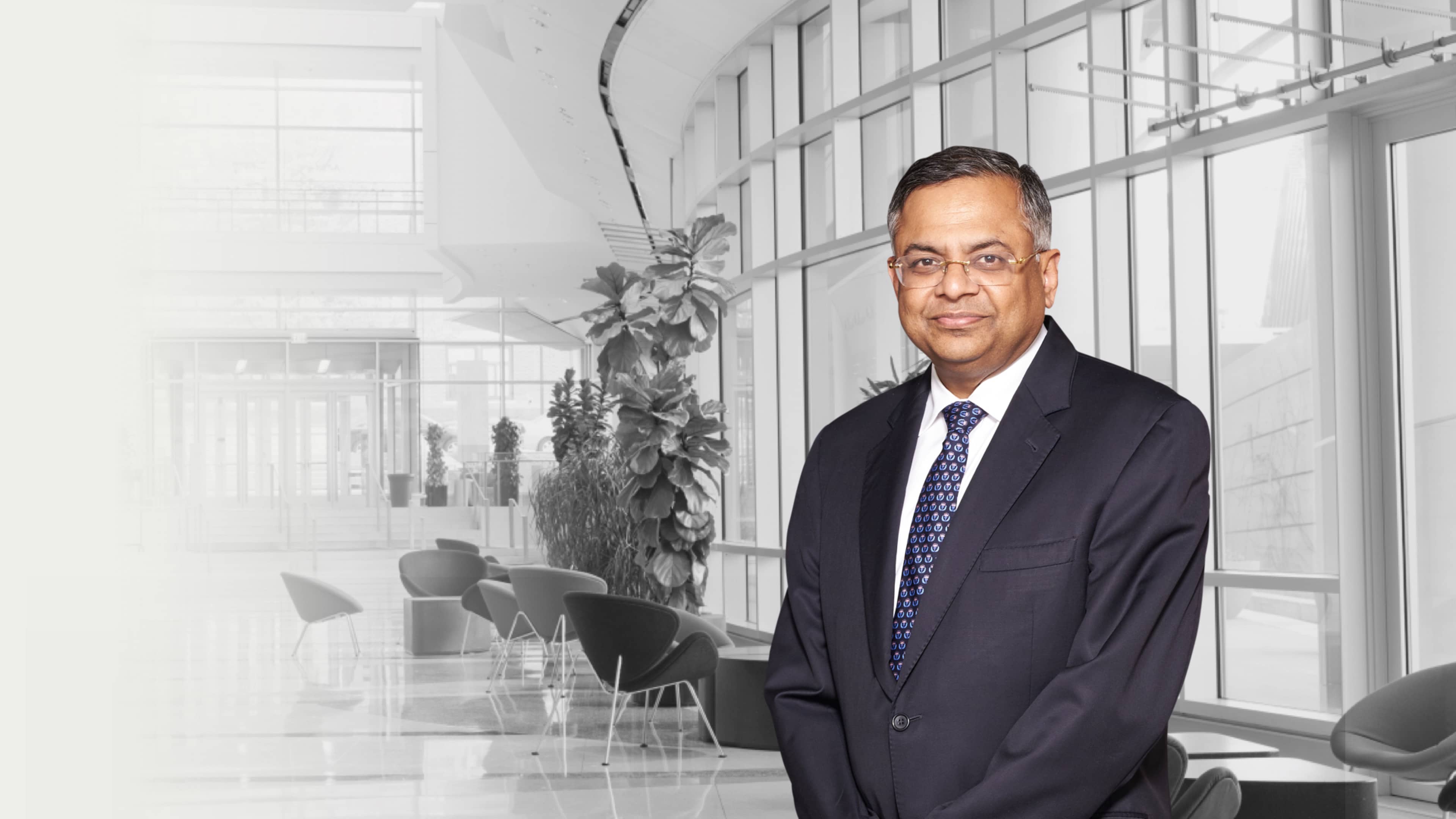The primary purpose of business should be to add value to the world we live in, earn the trust of the society and, in turn, the social license to exist and grow. Trust is built through doing right by people. Natarajan Chandrasekaran, the Executive Chairman of Tata Group explains the importance of leading with trust.
The TATA Group is a global conglomerate with interests in a wide range of industries from software to industrials and consumer goods. We operate out of more than 100 countries, and employ more than 700,000 people of various nationalities. We count nearly a quarter of the world as our customers. But we stand out as the only corporation of this scale that is majority-owned by a philanthropic entity – the Tata Trusts, one of the largest philanthropies in the world. This unconventional structure reflects our founding philosophy set 150 years ago, of creating long-term value and giving back to the community where we operate. It also reflects in the ethos of the group, which can be summed up in the words “leadership with trust”.
In thinking about building an unconventional institution that endures, I take inspiration from my other passion—running. I am not what you’d call a natural runner: I took up running only a bit over a decade ago, after my doctor told me – in so many words – that I was not being smart with my health. Today, it’s a part of my life. Running marathons isn’t just something I do. It’s shaped my perspective on life. In that spirit, I offer just two lessons that apply to running and to building institutions that endure.
Going the Distance
The basics of running is about building endurance and speed. Both require different type of training. On the one hand you need to build endurance by increasing the distance gradually and doing more and more of the longer runs. On the other hand you need to do your tempos to develop your speed. Stay disciplined and regular, and one day you’re running marathons.
Institutional endurance isn’t all that different from physical endurance. It is about getting direction and velocity. Get the direction right then increase the velocity. In order to get your direction right, you need to think about what skills you want to inculcate. The key is getting the basics right, and having the discipline to keep at it. I believe that the basics consists of three things: culture of performance, collaboration and continuous learning. Perhaps these appear very simplistic. All I’ll say is, there’s a difference between simple and easy.
Lift
The other inspiring part of running a marathon is lift: the energy one draws from the people around you. In the 2008 Berlin Marathon, Olympian gold medallist Haile Gebrselassie broke his own record to clinch first place. Here’s what he told his fellow runners in the race: “You were my tailwind.” That’s lift.
The Tata Group has taught me that the most critical element of lift is trust, and the way you build trust is to do right by people. For me, it’s part of every decision. As an employer, it means promoting a meritocracy where performance determines success. It means promoting forward looking policies that allow our employees a better quality of life, often years before they became legal obligations for companies. When I look outside the company, it means dealing with your stakeholders in a consistent, friendly, and transparent manner. It also means being committed to sustainability, and to the highest standard of governance.
The Road Ahead
I speak to you at a time when the world is at a unique and pivotal moment—one characterized by unprecedented churn and, at the same time, unparalleled opportunity. On one hand, we face more geopolitical volatility than we have seen in decades. In response to a host of issues related to legacy and dislocation, politicians across the globe are moving to a more decoupled and protectionist stance.
On the other hand, industries are converging in new and creative ways, and at a breakneck pace. We are increasingly connected in a world of digital networks, AI and everyday activities that are augmented by technology.
The primary purpose of business should be to add value to the world we live in and earn the trust of society and the social license to exist and grow. Some of the key issues facing the world are - climate change, inclusion, water scarcity, access to education and healthcare, and lack of steady and well paying jobs. Most of these challenges can be tackled by perseverance and coordinated action.I have no doubt that today’s technologies of AI and Data Sciences will be fundamental to finding sustainable solutions to these and other problems. The challenge then is to ensure that we invest in education and training to nurture at scale the talent and leadership needed to make this reality come true.
Despite the high volume of ‘noise’ out there, I strongly believe the short-term uncertainty will give way to a world more integrated and more vibrant than it has ever been before. We are all part of an exciting time, a monumental transition.
Finally I would like to share with you one of my favorite quotes from the Bhagwat Gita – “We are kept from our goals not by obstacles but a clear path to lesser goals”.

